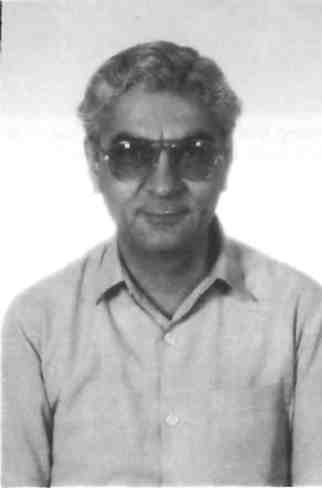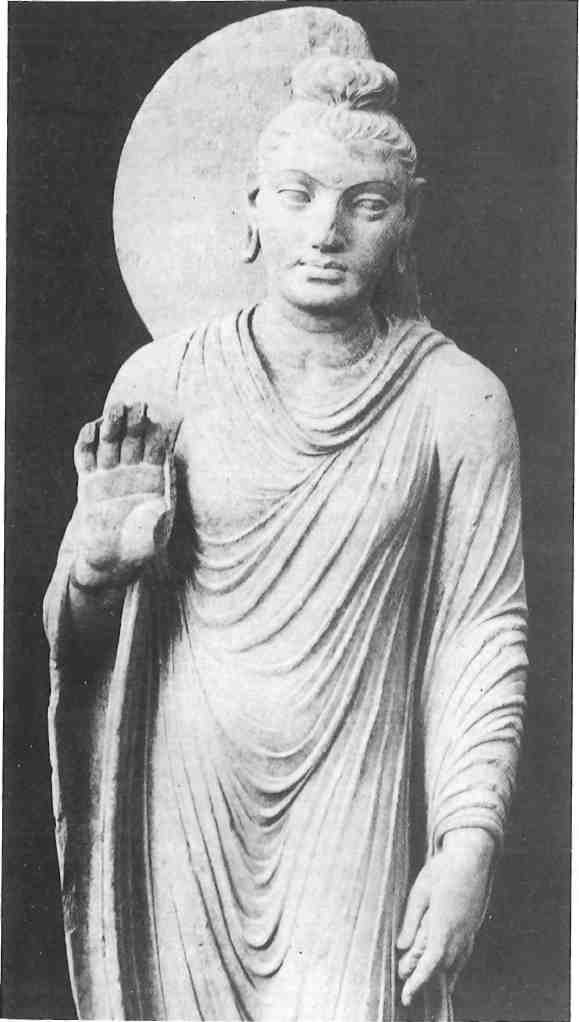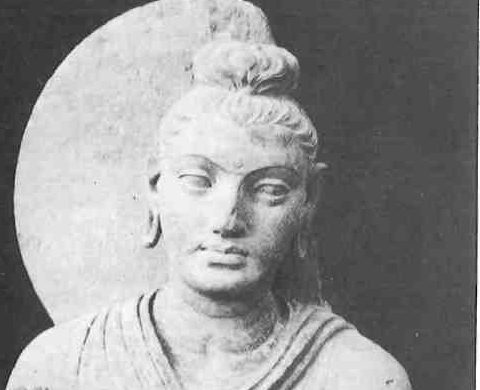Alexander the Great was the first to envision a union of East and West. For Greeks today his final dream needs restatement.
Although Alexander the Great’s final dream did become a reality when he embarked on his march into Northern India, the fact remains that after his death in 323 BC, Greek interest in India waned. Then, a thousand years or so later, the Islamic conquest of the Indo-Greek Bactrian kingdom, which extended from Kabul, Afghanistan, to the Punjab, severed all ties between the Hellenic world and the sub-continent.

Independence from the Ottoman Empire in 1821 did not rekindle Greek interest in India, notwithstanding certain successful commercial ventures during the time of the British Raj. There is one notable exception. Dimitrios Galanos, born in Athens in 1760, became a leading Indianist, left his papers to the National Library and died in Benares where his grave can still be seen in the British cemetery.
More recently it has been the individual forays into Indian culture (the late Queen Frederika was one of them) in quest of spiritual truth that has made the headlines. But what of Alexander? Heliodorus? Menander? Do they actually have a place in the India of today?
India’s new man in Greece, Ambassador Aftab Seth, knows that these Greek historical figures, as well as the Hellenic spirit, continue to grace his country’s past and to adorn its present.
“In the modern context, we are so far from each other,” admits the Ambassador, “though historically speaking Greece and India do represent a synthesis of mind and spirit.”
Mr Seth has come to Greece after serving as spokesman for the Indian Foreign Office from September 1988 to September 1992. Preceding this was his posting as Consul-General in Karachi, Pakistan, from August 1985 to September 1988. Strenuous, challenging postings, to say the least. How, then, does he feel about his new posting in Athens? Mr Seth displays all the signs of a man at ease.
“Very relaxed to be in Athens really,” he admits, but already he is thinking of the challenges ahead. “Greece is fairly virgin ground for us, realistically speaking. There is, of course, the historical base linking India and Greece upon which we can build. But the amount of work which needs to be done, in so far as making up for lost ground, makes this one of the most important of assignments.”
During the 1980s a number of Indo-Greek seminars were conducted at Delphi primarily to do with drama and poetry; research was done in these areas, with the aim of reinstating, as well as developing, new literary and social links between the two countries.
“But they did not amount to much,” the Ambassador laments. “Such literary and cultural exchanges need to be conducted on a sustained basis.”
“Centers of modern Indian and Greek studies also need to be established,” he continues. “The historical link between East and West, between India and Greece, is still very much taught in both countries, but we need to do more to find out about each other in the modern context.”
To reveal India to the modern Greek eye will be one of Mr Seth’s primary aims. The 300 million which alone make up India’s middle class is a revealing fact. “They are not too different from the Greeks,” Mr Seth points out. “They are vibrant, emotional, noisy – just like Greeks; they are extremely fond of endless talk, especially on such topics as politics – just like Greeks; they share with Greeks the same romantic bent; the same inclinations to spontaneity, independence.”
In the political and geographical landscape Greece and India might also be said to be experiencing similar difficulties with their next-door neighbors. The Ambassador seems to be well acquainted with these.
“It is most important to have neighbors who do not wish to interfere in your internal affairs,” he emphasizes. In his eyes there seem to be recognition and understanding of Greece’s present-day troubles with its neighbors.
“Proper, well-meaning and respectful neighbors must not use or misuse symbols for the purpose of wishing to undermine the countries on which they border,” says Mr Seth. It is easy to see that this is an issue which the Ambassador feels most strongly about. “An essential foundation for good neighborly relations is a scrupulous regard for each other’s territorial integrity,” he says, adding: “As well as an unwavering determination on the part of the neighbor to eschew any temptation to fish in troubled waters. Greece and India have views on these points which are almost identical.”
Certainly many things have changed since Alexander first marched eastwards to the Punjab. Fishing though he might have been in faraway waters, Alexander was no ordinary fisherman, the vanquished quickly realized, but an extraordinary human being of great strategical and intellectual skills, as well someone possessed with a vision to unite East with West.
In India Alexander became known as Alec/Sundara, meaning Alex the Beautiful; in the Hindu scripts he was elevated to godly eminence. Coins appeared, with Alexandrian and Hellenistic motifs on the one side, on the other, elephants and tigers. Thus the seeds were sown for Buddha to evolve a more Apollonian countenance.
Perhaps a ‘New World Order’ was also on Alexander’s mind back then, too, but what of today’s social and political movements which are being dubbed its front-runners?
“India is all for this New World Order,” says the Ambassador, “provided it is not based on discrimination and inequality. In the UN Security Council, India struggled to prevent the big powers from using this forum as a means of exerting their influence on less powerful and less wealthy countries.” India, being a non-permanent member of the Security Council, vacated its seat at the end of last year, leaving Pakistan to take up the gauntlet as the new member from that part of the world.

“It is important that these new changes which are happening today do not further divide mankind,” says Mr Seth, adding that his country has every intention of continuing with its objective of developing nuclear capability for peaceful purposes.
“We have no choice,” says the Ambassador. “We have of course championed the cause of universal nuclear disarmament for many years, but you see the present dividing line separating the nuclear ‘haves’ from the nuclear ‘have-nots’ is still with us. Which is unacceptable, of course, primarily for the reason that there is this ill-founded assumption on the part of the nuclear “haves’ that they alone are possessed with moral superiority. India, like Greece, recalls only too well existence under an imperial power. We cherish, therefore, like Greece, such notions as freedom and equality amongst people, and we certainly do not believe in moral superiority, especially on the basis of nuclear capability.”
It is often observed that Greeks and Indians, in their respective golden ages, have in common this propensity to forever seek out a religion and/or a fundamental theory of life for the purpose of harmony between body and mind, irrespective of the physical discomfort which such a pursuit may bring. This is what attracts people to Greece; it is also what attracts people to India. In strong contrast is the obsession of the highly industrialized people for comfort.
Given today’s social realities and the resulting shift of primary values to a more pragmatic, if not materialistic base, does this attraction for spiritual truth and enlightenment still hold? Ambassador Seth thinks that it does. “India will always have something to offer those seeking truth and enlightenment,” he says. “An aspiring guru, once he attains enlightenment, must share his experiences with the rest of us. It is part and parcel of our entire social structure, this sharing of spiritual achievements of the few with the many.”
The Ambassador pauses, it seems to take a stock of things. But he is quick to continue.
“Make no mistake, the average middle-class Indian aspires to the same material aims as your average middle-class Greek: a car, a house, a more modern TV set, a video; but what is important here is the degree of detachment which can be achieved from these material objects. Hence the experience and guidance of the guru in the art of detachment, and it is this degree of detachment, in the final analysis, which defines the scale of enlightenment achieved. This seeking after truth and enlightenment will always be with us,
India has many advantages: one being its qualified but competitive manpower irrespective of age or time, and it is just as strong now as it ever was,” says the Ambassador. One of the first Greeks to seek spiritual enlightenment in India was the Greco-Bactrian Menander who set up a kingdom in the Punjab. This is recorded in a very important and monumental dialogue in the Pali language called ‘Milinda Pantha’ which means, The Questions of King Milinda’. Milinda, or Menander, discussed with a Buddhist sage the question of ‘What is the Soul?’ As ruler of the city of Mathura, later a center of Krishna worship, Menander introduced the worship of Dionysus, as discoveries of Indo-Greek statuary in that city have revealed.
Not all Greeks confined themselves to Buddhism. One, at least, became a prominent Vaishnavite Hindu, and has left in testimony the following inscription in Sanskrit:
“This Garuda Column of Vasudeva, the god of gods, was erected by Heliodorus, a worshipper of Vishnu, the son of Dion, and an inhabitant of Taxila, who came as a Greek Ambassador from the great King Antalcidas to King Kashiputra Bhagabhadra, the savior, then reigning in the 14th year of his kingship. Three immortal precepts, when practiced well, lead to heaven: self-restraint, self-sacrifice, and conscientiousness.”
Ambassador Seth is in a hurry to bridge this gap which has existed between Greece and India since the fall of the Indo-Greek Bactrian kingdom. One of the ways of achieving this, he will gladly tell you, is to establish a chair of modern Indian studies in Greece. To this end he has fully committed himself, and thus far he is encouraged by the response coming from Greek private and public sectors.
“My government,” points out Mr Seth, “would try and match any financial assistance which may come from the Greek government, and, of course, the same holds for any attempt on the part of the Greek government to establish a chair of Modern Greek studies in my country.”

India has only recently stepped out of almost four decades of socialistic rule. It has made sweeping changes in its financial and banking system. In September 1992 it opened its 22 stock markets to foreign investors; stock markets which are well organized and developed. The Mutual Fund Investment giants Jardine and Aga Khan Fund moved in immediately, buying up shares in the Housing Development Finance Corp. India is hoping there will be more of this, and many fund managers believe that the country offers an appealing market, especially when looked at in the long term. India needs foreign investors to help it offset its crippling foreign debt.
“In the modern context,” says the Ambassador, “both Greece and India can benefit greatly from each other. I am certain that the modern Greek investor will find India extremely rewarding. Look at the extremely populous consumer base which India has to offer; its buying capacity is constantly improving. And don’t forget,” he adds, “foreign exchange restrictions have now been lifted in my country.”
“The results of 40 years of immense national effort since independence is now noticeable,” writes V.S. Naipaul in his most recent book on India. “There is increased wealth. There is a new confidence in people. The Bombay stock market has made more money for young stockbrokers in the past five years than what their fathers had made in a lifetime.”
During the British Raj many Greeks made their presence felt in the Indian sub-continent. On the commercial side, there was the success story of the Greek company, Rallis Ltd, manufactures of cotton, jute as well as machinery, and still going strong today, though now in Indian hands.
“Greece certainly represents the gateway to the Balkans,” says Ambassador Seth, ” and there is Eastern Europe as well, easily accessible from Greece. India stands to benefit, not only commercially, but also from a cultural point of view, by its presence in Greece. We hope this presence will get stronger in every respect.”
There is presently a joint Indo-Greek commercial venture in the manufacture of jeeps, trading under the name of Mahindra Hellas. It has been in existence for eight years, initially directed at the local domestic market, but now also involved in the export of its product to other European countries. On the other hand, the giant Indian company, TATA Steel, is presently showing strong interest in wishing to enter the Greek manufacturing market and is seriously looking around at what is available. Mr. Seth thinks there is room for much more than this, and herein lies another of his priorities; namely, to encourage and facilitate commercial interests with sights set either on India or Greece.
The Ambassador’s birthplace is Patna, a large, bustling city, on the Ganges. It was to Patna that the first Greek ambassador, a gentleman by the name of Megasthenes, was posted around 300 BC. Given the geographical coincidence, this may be interpreted as a reciprocal act on the part of the gods. Then again, Mr Seth does not discount the possibility of the reincarnation process playing its part. It may, after all, explain his very strong pro-Greek feelings.
Mr Seth holds a MA in Modern History; speaks Japanese, German and English; is married and has a son at Harvard and a daughter in her International Baccalaureate year at the ACS, Athens. It is also rumored that Mrs Seth, who, apparently, had such a difficult time with the Japanese language during her husband’s posting in Tokyo, is intent on learning as much Greek as she possibly can. It goes without saying that everyone wishes her the best of luck this time around.








